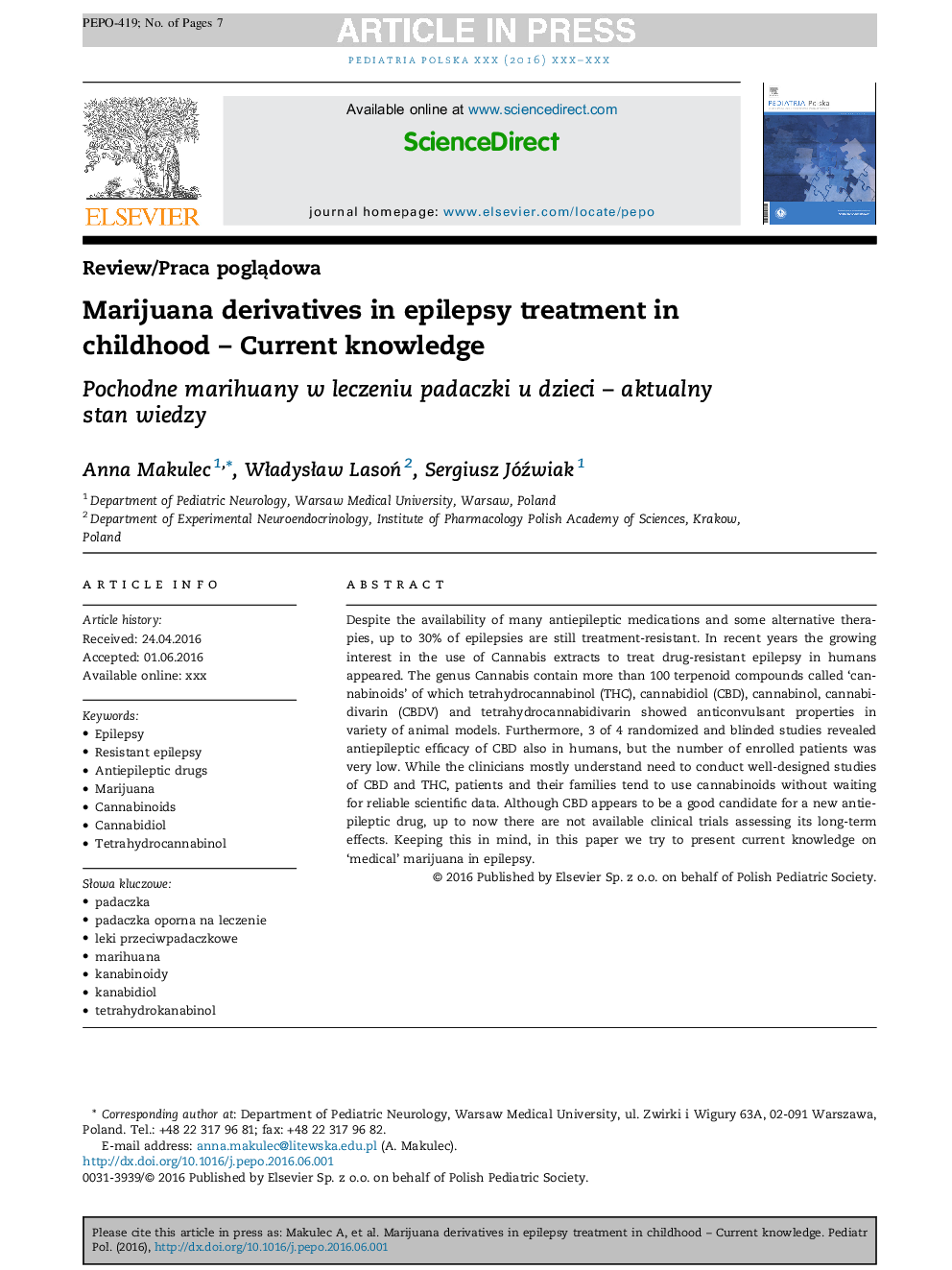| Article ID | Journal | Published Year | Pages | File Type |
|---|---|---|---|---|
| 8579978 | Pediatria Polska | 2016 | 7 Pages |
Abstract
Despite the availability of many antiepileptic medications and some alternative therapies, up to 30% of epilepsies are still treatment-resistant. In recent years the growing interest in the use of Cannabis extracts to treat drug-resistant epilepsy in humans appeared. The genus Cannabis contain more than 100 terpenoid compounds called 'cannabinoids' of which tetrahydrocannabinol (THC), cannabidiol (CBD), cannabinol, cannabidivarin (CBDV) and tetrahydrocannabidivarin showed anticonvulsant properties in variety of animal models. Furthermore, 3 of 4 randomized and blinded studies revealed antiepileptic efficacy of CBD also in humans, but the number of enrolled patients was very low. While the clinicians mostly understand need to conduct well-designed studies of CBD and THC, patients and their families tend to use cannabinoids without waiting for reliable scientific data. Although CBD appears to be a good candidate for a new antiepileptic drug, up to now there are not available clinical trials assessing its long-term effects. Keeping this in mind, in this paper we try to present current knowledge on 'medical' marijuana in epilepsy.
Related Topics
Health Sciences
Medicine and Dentistry
Dermatology
Authors
Anna Makulec, WÅadysÅaw LasoÅ, Sergiusz Jóźwiak,
